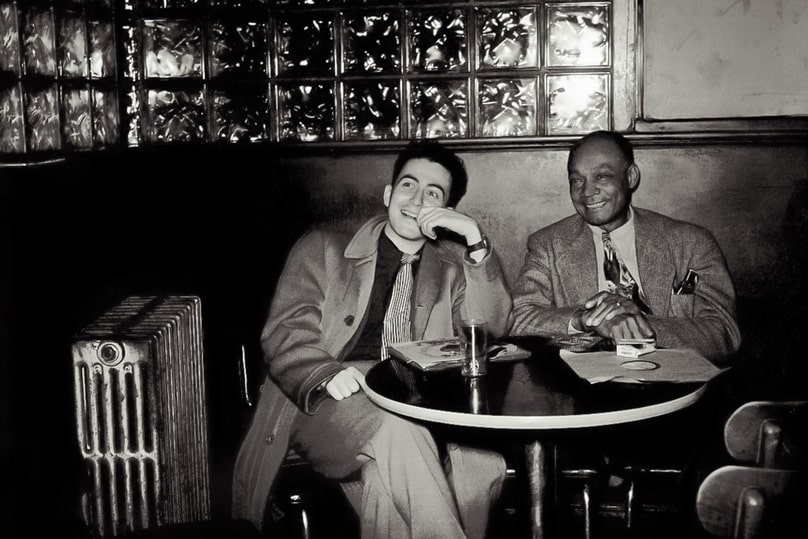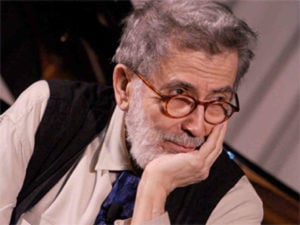
I first encountered the writing of Nat Hentoff as an idealistic and protest-conscious fine arts student, many centuries ago. I found his salty articles eye-opening and liberating.
Nat Hentoff taught me and my friends to be suspicious of lazy journalism, to look beyond groupthink and “robotic” responses, and to be unafraid of holding minority positions which straddled issues which were regularly caged up exclusively in the camps of either the “left” or the right. Hentoff brought the cool riffs of the Village, Greenwich Village, to the serious business of the common good, freedom of speech and the rights and dignity of human life.
One memorable opener of his from the Village Voice, a “alternative” newspaper for which he wrote, went like this: “For all the world to see, a 41-year-old woman, who has committed no crime, will die of dehydration and starvation in the longest public execution in American history.”
Hentoff was writing with his gloves off about the notorious case of Terry Schiavo, a brain damaged patient whose husband successfully applied through the American courts to have her life thus ended, despite the opposition of her parents, and as Hentoff pointed out, without “due process” by the courts and without routine medical investigation into her neurological situation. Hentoff captured the euphemistic manoeuvres which rationalised the process as a “minuet of death” between her doctors, the lawyers and judges of the land.
On 7 January this year, Nathan Irving Hentoff, jazz music critic, civil libertarian, broadcaster and novelist died peacefully at the age of 91, in his New York home listening to a recording of Billie Holiday.

His death was followed by a string of diverse obits ranging from the pages of the Guardian to the Federalist, from the muso media of Billboard and Rolling Stone, to religious publications such as Christianity Today and the Tablet.
Some commended his documentaries on jazz and his liner notes for recordings by Bob Dylan, Aretha Franklin and Ray Charles, while others puzzled (or praised) his outspoken comments.
Some of the tributes, describe him as a “contrarian” or an “iconoclast’s iconoclast” but all remark on his outstanding qualities as a crafter of the word both in print and on the airwaves. Nat Hentoff was a member of an endangered species, a hard-headed newspaperman, a fair and intelligent listener and a relentless checker of facts. He wrote with rawness without crudeness, with learning and the spice of the throwaway idiom.
Tom Robbins captures this style in this week’s Village Voice: “He spoke like he wrote, in measured sentences, offered with emphatic assuredness, always laced with a quotation from Duke Ellington or Louis Brandeis.”
This skill was honed by a classical education which began in his home town of Boston and continued at Harvard and at the Sorbonne as a Fulbright scholar. It was also fed by his upbringing in an observant Russian Jewish émigré family. Although he early lost his religious faith, he retained the intellectual and moral “righteousness” of the prophetic Hebrews. He described himself as “a Jewish atheist pro-lifer.”
Hentoff counted many faith-based activists his friends, notably Cardinal John O’Connor of New York about whom he wrote a book called: At the Storm Centre of a Changing American Church. Secular ideologues he noted had a more “absolutist” faith than any with a reasonable theology: “They don’t think anymore, they just react.”
An AAP journalist described him as having the presence and appearance of a “secular rabbi.” He was never afraid to remind his uncomfortable audiences of the small scale hypnotism and cant that lead to the horrors of Shoah.
Hentoff inspired many, including Australia’s activist and social commentator, Melinda Tankard Reist, who recalled this week the generous encouragement Hentoff gave in launching her book Defiant Birth in New York.
“It was such an honour to have him there … He had also written a cover note for the book. Nat Hentoff spoke out clearly of the dignity of all human life … but he did so by redefining the terms of engagement about the life issues.”
By “life issues,” he intended all of those concerning the “pre-born to the post-born” as he phrased it: abortion, eugenic screening, “soft” infanticide of the disabled, torture, racism, pornography, and the neglect and euthanasia of the suffering and aged. He did not see this as contrarian, but as consistent, echoing the scope of Pope Saint John Paul’s wide ranging “Culture of Life.”
Famously he called out, and eventually left the American Civil Liberties Union of which he had been a proud member, for being “resolutely” inconsistent in its position upon capital punishment and abortion. How, he asked, could the Union protest that the State violated its power as executioner in one mode while in the other it “agrees that the Constitution protects the right to take life?”
Hentoff also put his finger on the oh-so-genteel culture of death in our Western world.
In commenting on the release of research about the Nazi death camps he wrote scathingly: “But we are civilised. We kill one at a time.”
Vale Nat Hentoff – righteous voice of the village.
Anna Krohn.
